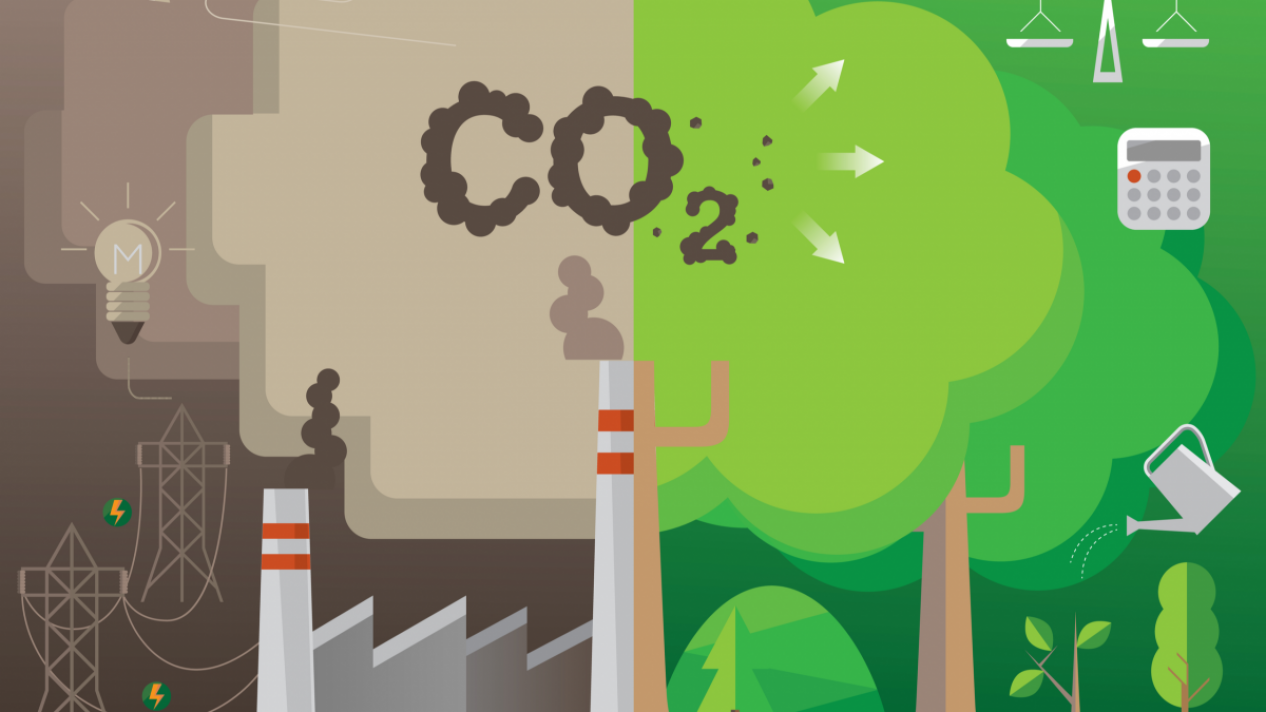
Maintaining global warming at or below 1.5°C is an international legal responsibility and a moral duty for Azerbaijan as well. Against the backdrop of pollution, dwindling natural resources, and growing demand, the concept of “green development” plays a substantial role in reducing carbon emissions and supporting decarbonization, while striving toward achieving sustainable growth. In this context, our country has devised a swift and comprehensive action plan with meaningful steps and is undertaking all the necessary measures to achieve that goal.
Azerbaijan joined the UN Framework Convention on Climate Change on 1995:
- The cadaster of greenhouse gas emissions contributing to the warming effect has been established and is consistently reviewed;
- A national action plan has been established in line with relevant obligations;
- Among the first nations to accede the Kyoto Protocol;
- Signed and ratified the Paris Agreement of the of the UN Framework Convention on Climate Change in 2016;
- Stood at the forefront of the global alliance in tackling climate change, among other initiatives.
Representatives of international organizations welcomed Azerbaijan’s submission of its first National Report on climate change in 2016, as well as the second National Report submitted at the 2019 High-Level Political Forum on Sustainable Development.
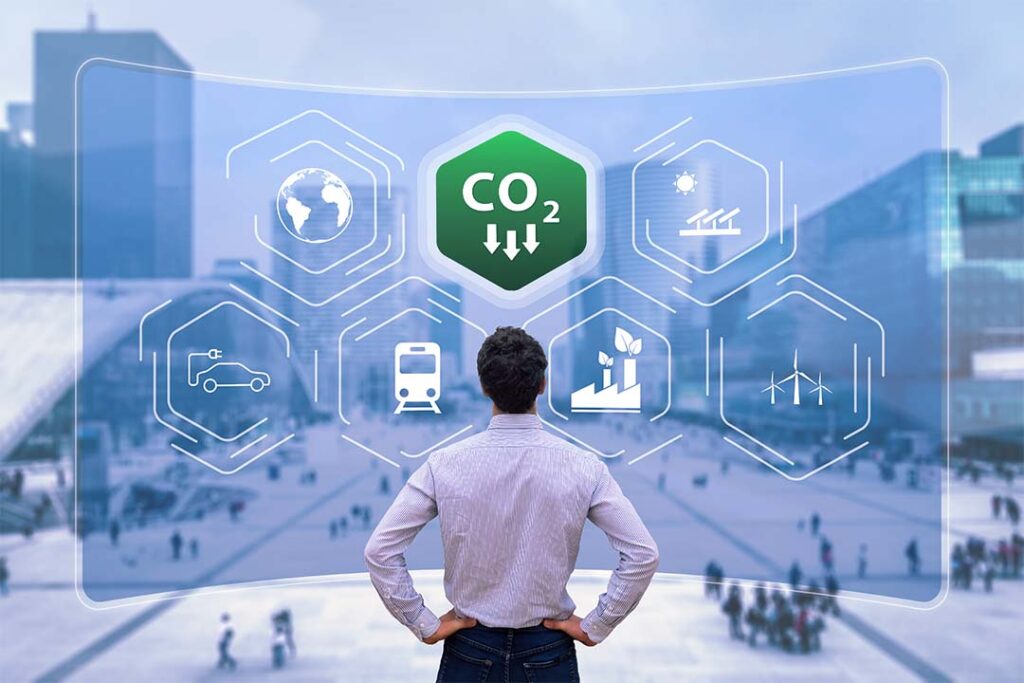
Azerbaijan has submitted three Voluntary National Reports as it expanded its capacities regarding the Sustainable Development Goals-2030. These reports reflect green growth and include commitments to implementing the Sustainable Development Goals. At the UN Climate Change Conference (COP26) in Glasgow, the Government of Azerbaijan declared its intention to reduce greenhouse gas emissions by 40% by 2050 compared to the baseline year.
It should be noted that Azerbaijan’s global footprint on carbon emissions is minuscule compared to other nations. Our country’s share of carbon dioxide emissions is a mere 0.13%. In contrast, the share of the top 10 nations responsible for carbon dioxide emissions stands at 67%. The environmental damage caused by the top five nations is particularly significant. China alone accounts for 36.7% (11.336 billion tons in 2021) of greenhouse gas emissions in the energy and industrial sectors. It is followed by the U.S. (5.32 billion tons), India (2.674 billion tons), Russia (1.71 billion tons), and Japan (1.6 billion tons).
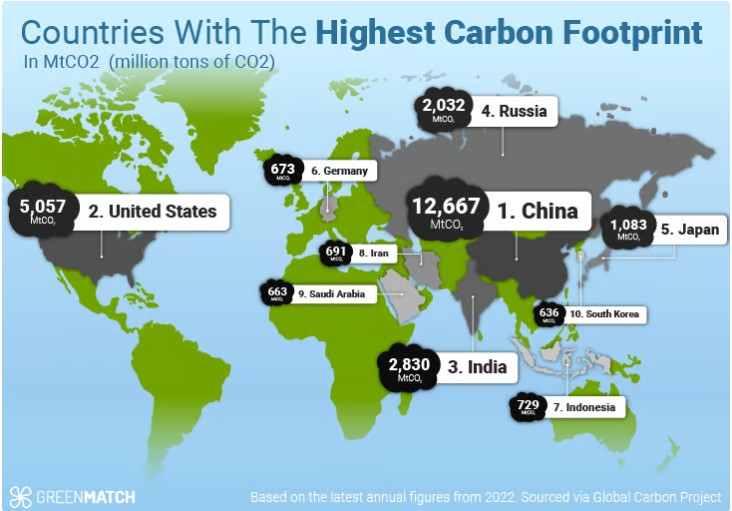
Despite being a country responsible for the least environmental damage, Azerbaijan remains a nation that actively addresses global climate challenges, advances initiatives, and is visible thanks to its resolute steps. Azerbaijan’s share of greenhouse gas emissions is incredibly small. Yet this ratio is sufficient for our country to keep up with the pace of decarbonization and develop its own strategy. As a key player in the green transition, our country has assumed an international responsibility to reduce emissions by 40% by 2024, while encouraging investments in green projects. Therefore, a long-term vision reflects a scenario for developing a decarbonization strategy.
What are Azerbaijan’s priorities?
According to the document “Azerbaijan 2030: National Priorities on Socioeconomic Development,” approved by President Ilham Aliyev, “a clean environment and a green growth country” has been identified as the fifth priority. The document prioritizes the application of clean technology and recycling, encourages the rehabilitation of polluted areas, broadens the usage of environmentally friendly green technology, and identifies concrete directives to that end.
One of the measures that plays a critical role in improving the ecological situation is recycling - converting materials that would otherwise be considered waste into new products. Preventing environmental pollution is the primary objective here. Balakhani Industrial Park, established by presidential decree on 28 December 2011, sought to create a favorable environment for business and potential investors. The “Temiz Sheher” OSC was identified as the managing entity in accordance with the decree.
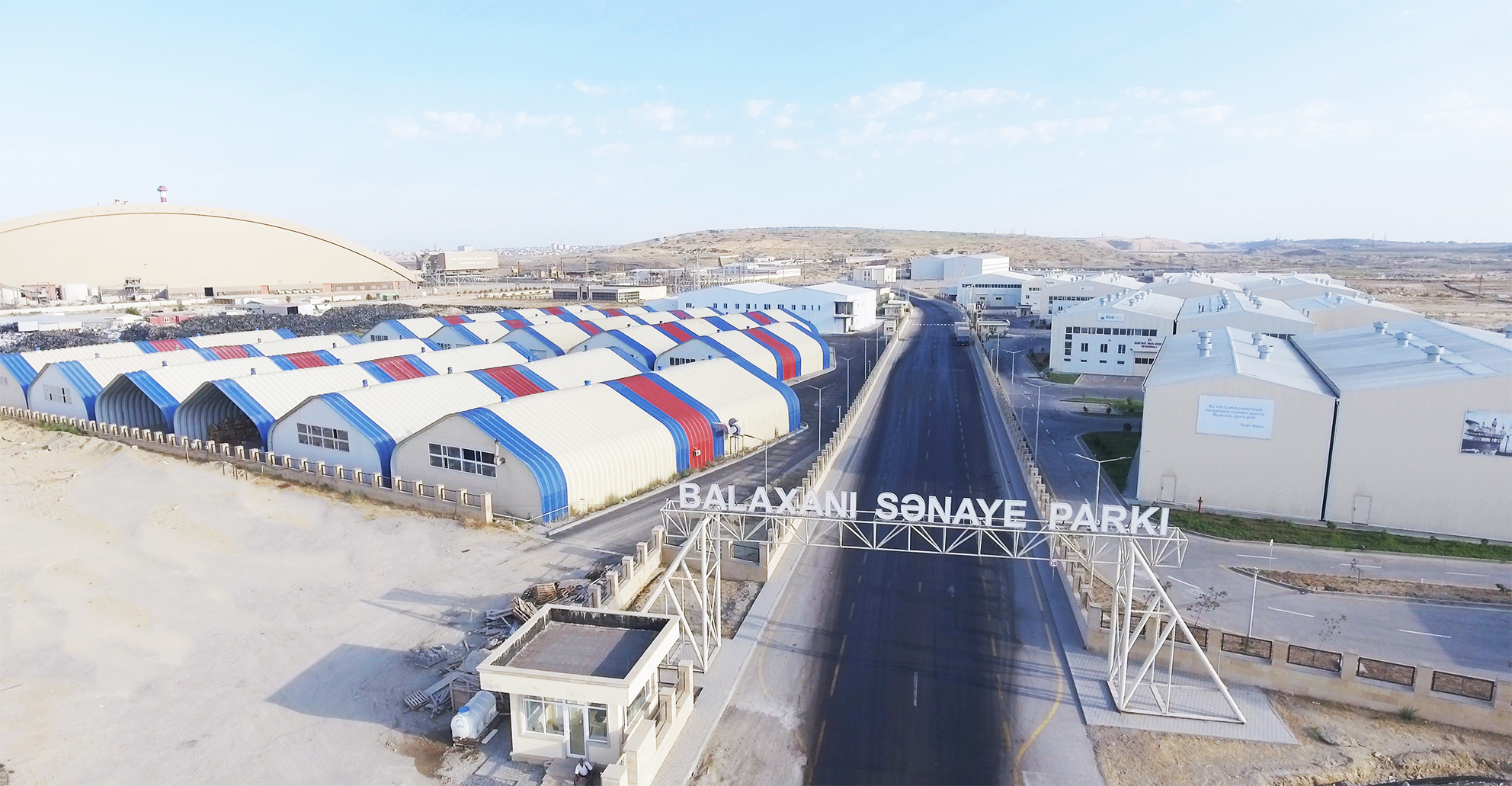
One of the efficient ways of waste management and reducing environmental footprint incineration and obtaining electricity along the way. In this regard, Baku Hard Domestic Waste Incineration Plant established in 2012 is making its impact.
Its handling capacity makes it the largest such facility in the CIS and Eastern Europe. This enterprise uses 4G technology and meets the most rigorous EU standards for protecting the environment. With an annual capacity to process 500 thousand tons of domestic waste and 10 thousand tons of medical waste, the plant generates 231.5 million kilowatt-hours, enough to power 100 thousand households.
Liberated areas are considered the most ample and favorable locations for achieving Azerbaijan’s green targets. The Presidential decree on the “Establishment of a Green Energy Zone in the Liberated Territories of the Republic of Azerbaijan” envisages the elaboration of a relevant concept, a master plan, and other respective measures aimed at harnessing the green resources of the region.
The concept aims to utilize the vast renewable energy potential of the liberated territories to power the region with environmentally friendly energy and to implement energy-efficient green technologies. The vision calls for the creation of a zero-emission zone across the liberated territories.
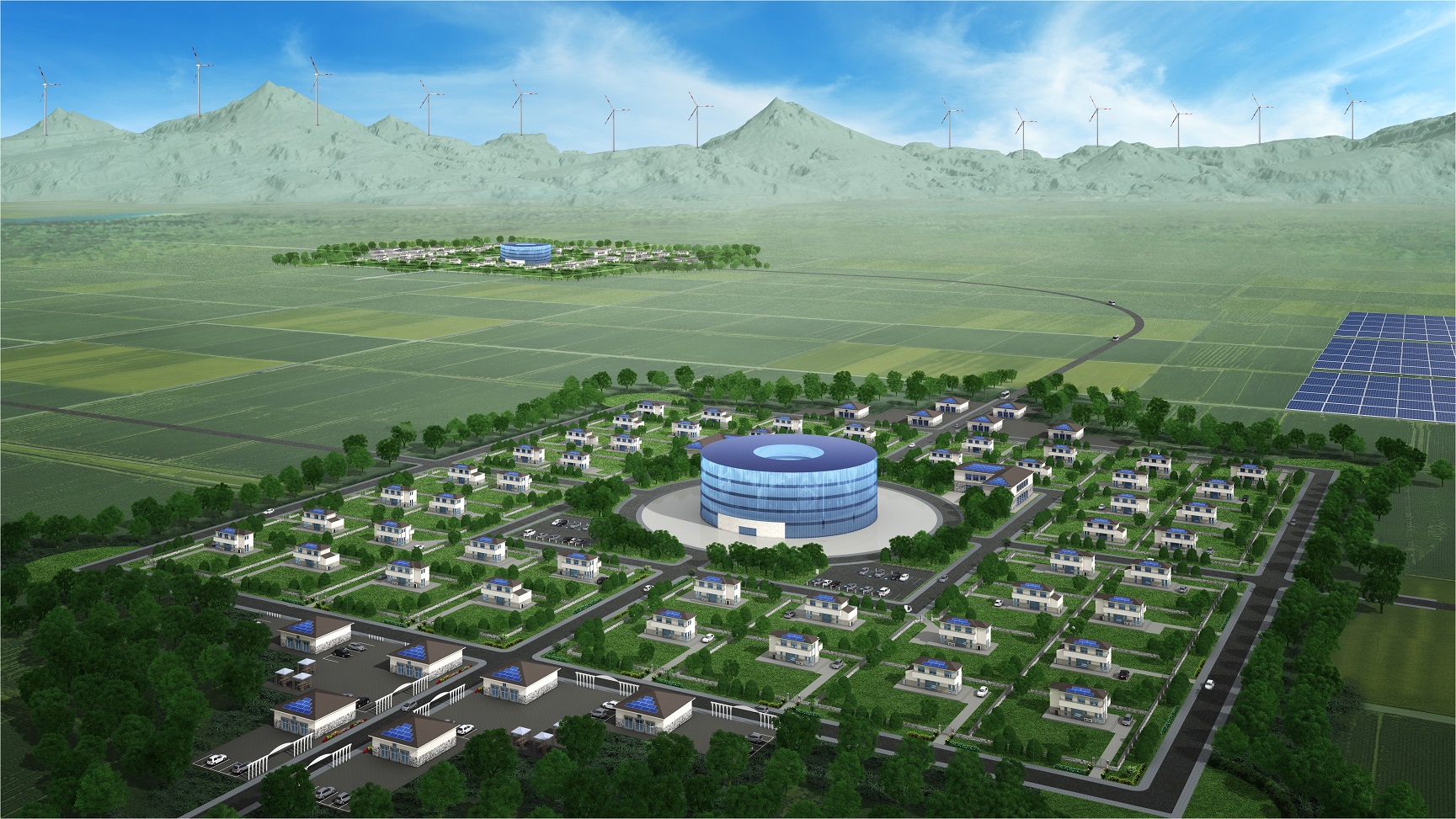
The renewable energy potential of the liberated territories is enormous. Initial estimates indicate that the Gubadli, Zengilan, Jabrayil, and Fuzuli districts hold significant potential for solar energy projects, with a technical potential of over 7200 MW. In the meantime, technically, the wind potential of the mountainous areas of Lachin and Kalbadjar districts stands at 2000 MW. As for other renewable sources, there is scientific research on geothermal energy in Kalbadjar and Shusha.
The region’s bioenergy potential will be assessed in the future as agriculture and other areas in the liberated territories start developing. It must be noted that consistent efforts have been underway to mobilize the renewable energy resources of the liberated areas. In line with that objective, as part of the restoration of generating capacity in Lachin, Kalbadjar, and Suqovushan, four hydropower plants with a combined output of 20.2 MW have already been commissioned. Meanwhile, in Jabrayil, on the Araz River, construction of two hydropower plants is underway, with Azerbaijan’s share of the total output reaching 140 MW. Construction of hydropower plants in the Lachin/Kalbadjar area, with an output of 100 MW, is also planned.
Recently (2 October 2024), on the sidelines of the Baku Climate Action Week, a contract was signed between SOCAR and bp regarding the implementation of the “Shafaq” project in the Jabrayil district. According to the joint participation contract signed between bp, SOCAR Green LLC, and the Azerbaijan Investment Company, a 240 MW “Shafaq” Solar Power Plant will be built. This project will contribute to boosting energy supply across the East Zangezur area and reducing carbon emissions in the Caspian Sea and the Sangachal Terminal by tapping into the solar energy potential of the region.
Along with playing a substantial role in the development of Azerbaijan’s renewable energy potential, the project will significantly contribute to the large-scale efforts aimed at turning the liberated areas into a green energy zone.
Overall, the mobilization of these sources has led to the creation of solid infrastructure and has boosted the number of renewable energy plants in Azerbaijan. Currently, there are various power plants in operation: 1,110.5 MW hydropower plants, 44.2 MW small hydropower plants, 66.1 MW wind power plants, 45.9 MW solar power plants, and 37.7 MW bioenergy power plants. Being the core source of green energy, they contribute particularly to reducing carbon emissions.
The mentioned power generation capacity is only part of the available sources. Assessments confirm the availability of more abundant green energy sources in Azerbaijan. In light of this rich potential, Azerbaijan is making substantial investments in the production of renewable energy in line with its green agenda and cooperates closely with foreign partners to that end. This strategy has accelerated the implementation of green energy programs jointly with international companies. Azerbaijan is implementing renewable energy pilot projects together with Saudi Arabia’s ACWA Power and the UAE’s Masdar. The groundbreaking ceremony for ACWA Power’s “Khizi-Absheron” Wind Power Plant project was held with the participation of President Ilham Aliyev on January 13, 2022.
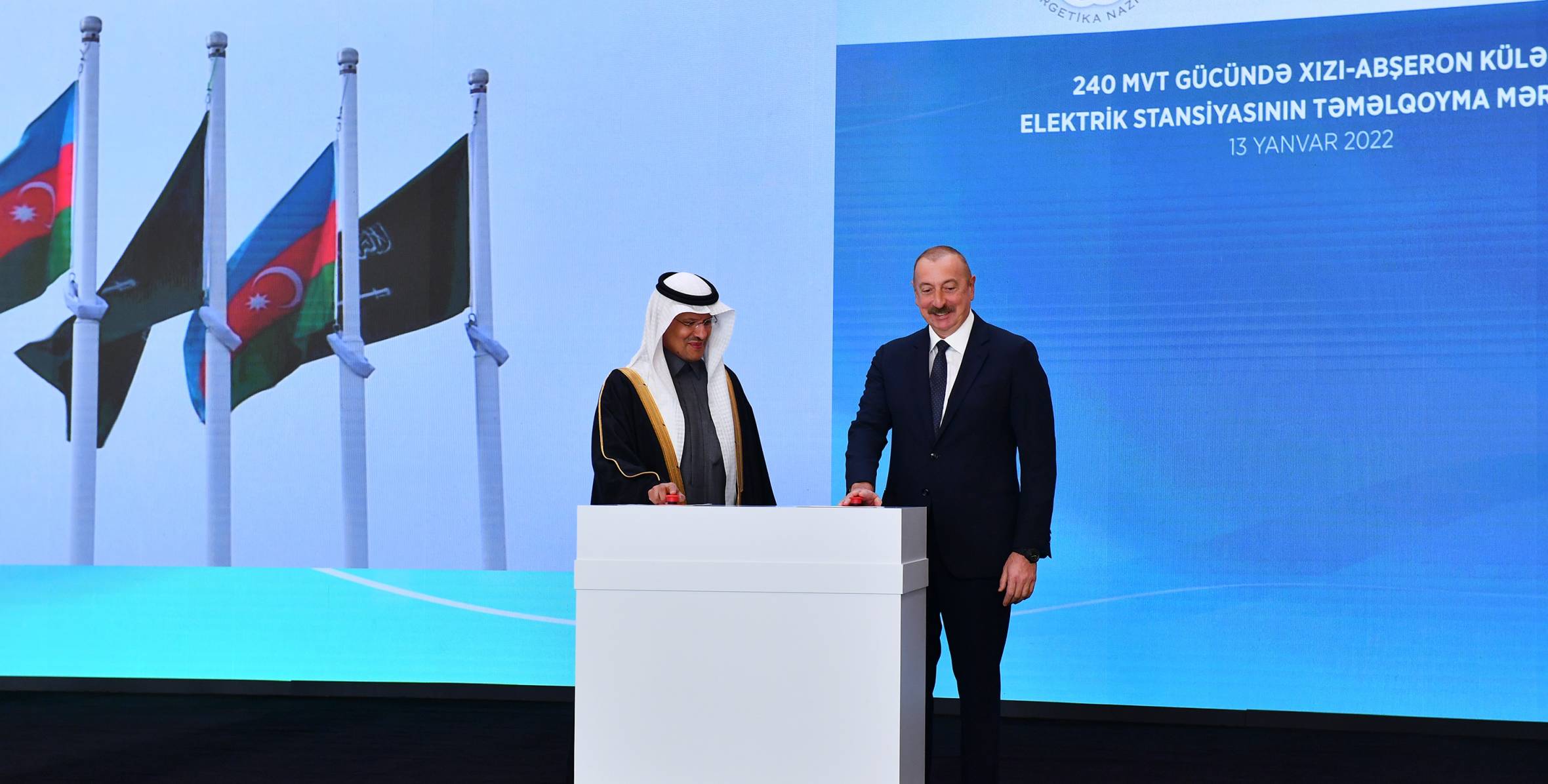
Furthermore, in March 2022, President Ilham Aliyev attended the groundbreaking ceremony for Masdar’s “Garadagh” Solar Power Plant.
Additionally, Azerbaijan and the Australian Fortescue Future Industries (FFI) signed a framework agreement on cooperation for renewable energy projects in Azerbaijan and the study and development of its green hydrogen potential. Declared open to green foreign investment, as of May 2024, $1.5 billion USD has been invested in Azerbaijan for projects facilitating the green transition. In June, three agreements worth $1 billion USD were signed with the UAE’s Masdar. According to the agreements, 445 MW and 315 MW solar power plants will be built in Bilesuvar and Neftchala respectively, and a 240 MW wind power plant will be constructed in Garadagh - (link). That brought the volume of green investments to $2.5 billion USD.
Additionally, SOCAR signed a Memorandum of Understanding with Azerbaijan’s strategic partners ACWA Power and Masdar on the development of 500 MW of renewable energy projects in the Nakhchivan Autonomous Republic. According to the document, the parties declared their intention to enhance decarbonization and assist Azerbaijan in achieving zero-emission targets.

All of these efforts and projects, along with investments channeled into renewable energy production, have resulted in a drastic increase in green energy production in Azerbaijan. Each renewable energy production facility has registered growth in the first eight months of 2024: hydropower plants – 2,138.4 million kilowatt-hours, wind power plants – 37.9 million kilowatt-hours, solar power plants – 424.3 million kilowatt-hours, and the Hard Domestic Waste Incineration Plant – 171.2 million kilowatt-hours. As a result, energy production across green energy sources has increased by 1,240.7 million kilowatt-hours, reaching 2,771.8 million kilowatt-hours compared to the previous year. This has brought the share of renewable energy in overall energy production to 17% (link).
Existing scenarios clearly indicate that renewable energy production will further increase, and as the efficiency of green energy grows, the share of renewables will reach 24% by 2026 and 30% by 2030 (link). This growth will also strongly warrant the increase in export potential of renewable energy. Stemming from this potential, as part of its modern energy policy, Azerbaijan has prioritized the export of renewable energy to world markets. The legal and economic feasibility of a green export cable has been launched according to this strategic vision. In December 2022, the Agreement on Strategic Partnership in the Development and Transmission of Green Energy between the Governments of the Republic of Azerbaijan, Georgia, Romania, and Hungary was signed in Bucharest.
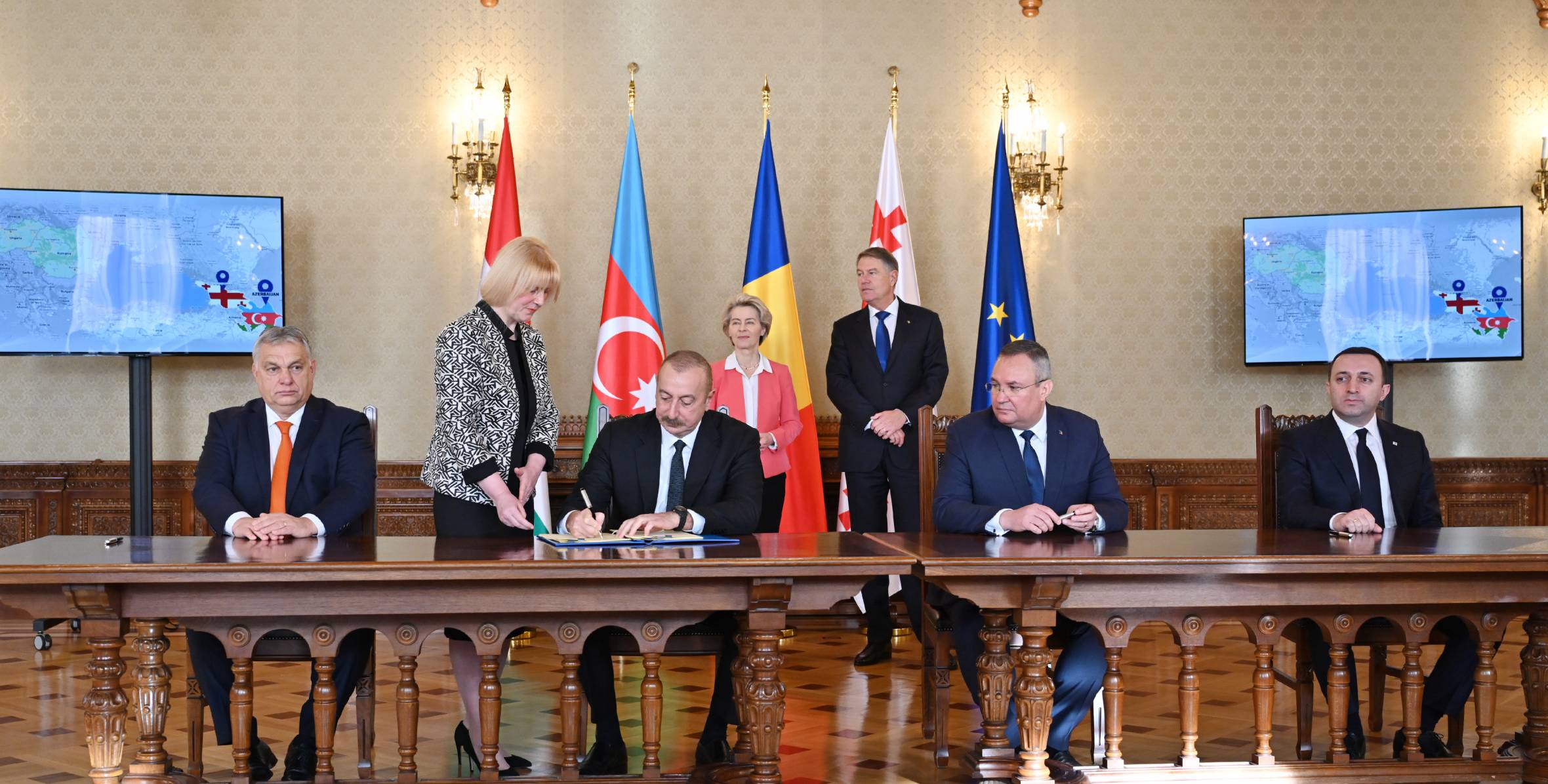
Along with green energy projects, Azerbaijan’s decarbonization priorities include exploring the development of a low-carbon transport sector, the creation of a green construction system, clean industry, and decarbonized energy and transportation systems. One of the primary directions of decarbonization is the reduction of gases emitted by vehicles.
Decarbonizing Azerbaijan’s Transport System
One of these targets is to make the automobile fleet greener. In line with the efforts to develop the low-carbon transport system, tax and customs incentives for green vehicles have been introduced, focusing on the import and sales of electric vehicles. With the changes made to the Tax Code as of 1 January 2022, the import and sales of electric vehicles have become VAT exempt. Furthermore, second and third-level electric chargers have also become VAT exempt for three years, starting 1 January 2022. (link)
Also, according to the decision by the Cabinet of Ministers on 11 November 2022, the duty on imported electric cars up to three years old was reduced from 15% to zero. In addition, the duty on second and third-level electric chargers was also reduced from 5% to zero.
Moreover, subparagraph 7.3.3.2 of the Action Plan on the “State Program on Road Safety for 2019-2023,” approved by Presidential decree, includes incentivizing the use of environmentally friendly vehicles. Relevant government agencies have been tasked with implementing necessary measures to gradually bring fuel types in conformity with Euro-5, Euro-6, and other standards.
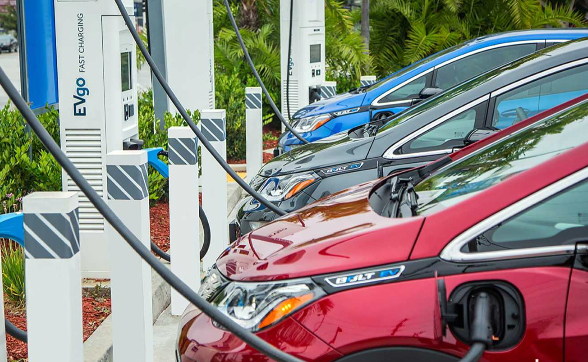
With the relevant decision of the Cabinet of Ministers, city transport, and taxi vehicles in particular, are required to meet the Euro-5 standards. By the same decision, the import of vehicles older than 10 years has been banned. In addition, as of this June, Azerbaijan has ensured continuous production of AI-95 petrol and brought the production quality of petroleum and diesel fuel up to Euro-5 standards. This is expected to reduce carbon emissions.
According to decarbonization plans and short-term climate goals, the transition to Euro-6 and Euro-7 environmental standards is also planned, with the strategic goal of establishing an ecologically cleaner transport infrastructure.
As a continuation of these consistent efforts and policies, starting 1 January 2025, the import and sales of chargers for electric vehicles will be VAT exempt for another 2 years. The draft amendments to the Tax Code were adopted on their first reading during a plenary session in Parliament on 8 October 2024.
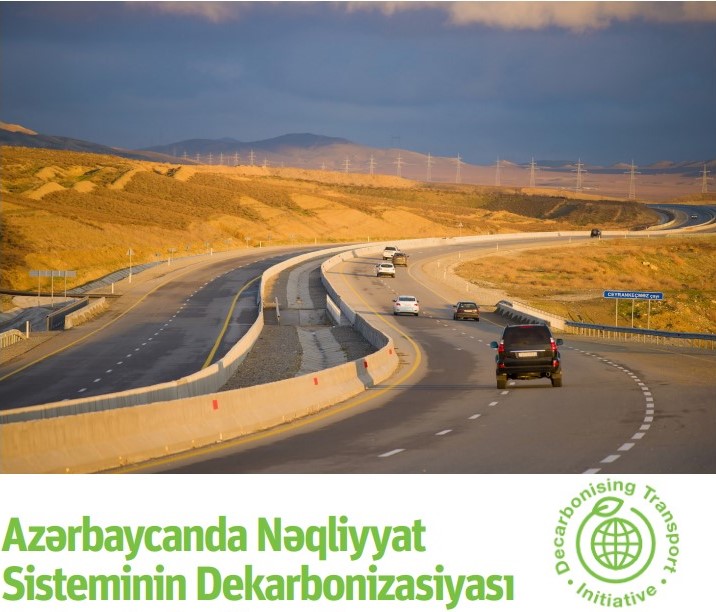
Additional changes are envisaged in the tax system to reduce the impact of carbon emissions in the industrial sector and promote green energy. The work is underway to define the scope of ecological and green taxes aimed at tackling climate change and expanding the use of green technologies. Best international practices and possibility of applying carbon or a similar tax are being evaluated.
Moreover, on 30 July 2024, 11 construction companies operating in Azerbaijan, endorsed by several members of the COP29 Organizing Committee, signed a Sustainable Green Building Declaration with the aim of reducing the industrial sector’s environmental impact and bringing down carbon emissions. The declaration also aims to highlight the responsibility of construction companies in reducing emissions. Green building projects involve constructing environmentally friendly homes. The choice of materials, energy usage, water conservation, and waste management are the key factors at play. The implementation of the Green Building Declaration will encourage construction companies to use more advanced applications, including smart technologies.
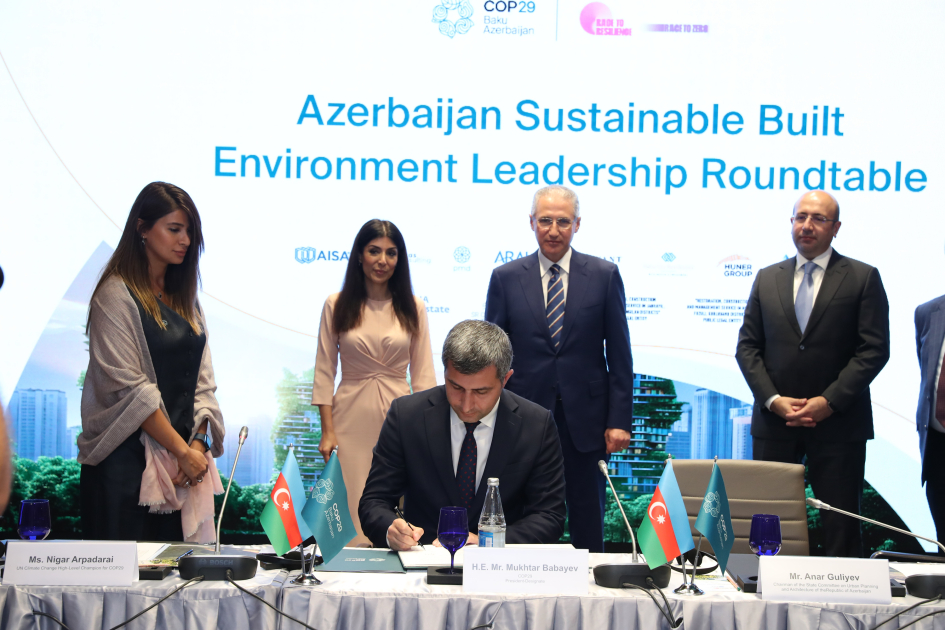
“Declaration on Zero Emission Freight Transportation,” signed on 1 October 2024, on the sidelines of the Climate Action Week in Baku, will constitute a critical platform for reducing carbon emissions in international shipping.
Through executing national priorities and targets identified by our country, Azerbaijan is positioned to reduce greenhouse emissions by 35% by 2030, and by 40% by 2050, with 1990 serving as the baseline year. Even though our country accounts for a minuscule share of emissions and the climate change footprint of its energy-intensive industry potential, the targets identified by our country in this sphere will make a significant contribution to tackling such serious problems.
Azerbaijan is also determined to join the ranks of advanced nations when it comes to renewables, and is utilizing its abundant wind and solar energy potential to that end. The target of reaching the 30% mark in renewable energy production by 2030 and diversifying the existing energy system is among the milestones pursued by Azerbaijan. Through the green transition, by 2050, Karabakh and East Zangezur, as well as the Nakhchivan Autonomous Republic, will become a zero-emission zone. This is a major component of the country’s plans to reduce greenhouse emissions by 40% by 2050.Azerbaijan is leading by example and will update its national targets in its next 1.5-aligned Nationally Determined Contribution.




















